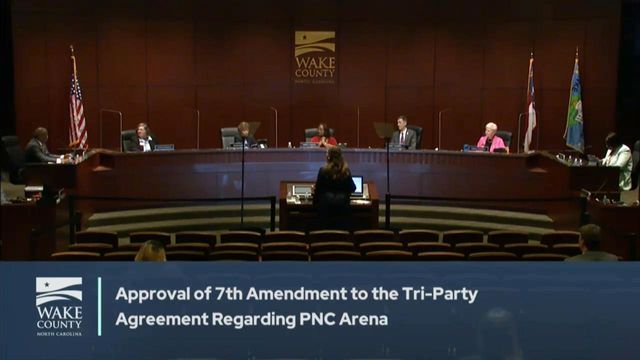Wake County budget: Property tax increases likely, public schools could get $49 million increase
Wake County residents will find out Monday night how much their property tax bills could increase and how much the county plans to allocate toward public schools.
On Monday evening, Wake County Manager David Ellis presented his recommended budget for fiscal year 2025 to the Wake County Board of Commissioners. The proposed budget is for about $2.07 billion.
"This budget aligns with the county’s newly adopted strategic plan,” Ellis said in a news release. “It includes funding to advance each of the plan’s six focus areas, so we can improve the quality and reach of our programs and services, while remaining fiscally responsible.”
The fiscal year runs from July 1, 2024, through June 30, 2025.
Wake County Board of Commissioners’ schedule to vote on the budget
County commissioners are set to hold a budget work session at 2 p.m. Monday, May 13, at the Wake County Justice Center in room 2800 at 300 S. Salisbury St. in Raleigh.
At 2 p.m. Monday, May 20, the county commission is scheduled to have its budget public hearing at the justice center in room 2700.
There is another public hearing at 7 p.m. Tuesday, May 21, in the Commons Building at 4011 Carya Drive in Raleigh.
County commissioners are expected to adopt the budget at their meeting at 5 p.m. Monday, June 3, at the justice center in room 2700.
How Wake County property taxes work
Wake County is committed to keeping residential property taxes revenue-neutral. That means most homeowners will pay a lower percentage of their property value in taxes but, since property values are up about 52.5% compared to four years ago, the amount that property owners pay will probably go up.
The proposed budget decreases the current tax rate from 65.7 cents to 51.05 cents per $100 of valuation. It means a resident who owns a $462,000 home (includes single-family homes, townhomes, condominiums, etc.), which is roughly the median assessed value in Wake County, will receive a tax bill of $2,358 this year.
While this means the proposed tax rate would be lowered, it means more people could see their property taxes increase.
Of the 51.05 cents per $100 of valuation, 36.30 cents will fund operating expenses and 14.75 cents will go towards long-term debt and capital plans, according to the county.
Earlier in 2024, the county was proposing a revenue-neutral tax rate of $0.4643 per $100 of value.
After the January 2024 revaluation, the average Wake County single-family home was worth $526,968. Four years ago, the average value for a single-family home in Wake County was $345,444.
Using Monday's property tax proposal, a single-family home worth about $527,000 would owe $2,920 in property taxes for 2024.
In comparison, a single-family home worth about $345,000 would ow $2,267 in 2023.
Wake County school board must figure out how to pay staff as federal funds end
On Monday, Ellis proposed the county contribute an additional $49 million to the Wake County Public School System. The proposed contribution would bring the county's total investment in the school district to about $693 million for the 2025 fiscal year.
Earlier in 2024, Wake County Public School System Superintendent Robert Taylor is recommended a $58.3 million budget increase from the county, but he’s divided his proposal into “must-do” items and “optional items.”
The school system’s budget, excluding building costs, is about $2 billion. Most of that — about $1.2 billion — comes from the state.
Taylor’s initial proposed budget increase of $58.3 million was higher than the county commissioners have approved in at least 17 years.
School systems across North Carolina and the nation are deciding what to do now that the billions of dollars in one-time federal assistance are drying up. Much of the funding went toward things such as one-time bonuses or one-time equipment purchases.
However, much of it also went to temporary employees and programs intended to boost learning and student support as test scores plummeted.
Now, school systems believe at least some of those employees and programs have been beneficial and should stay.












